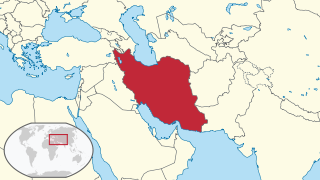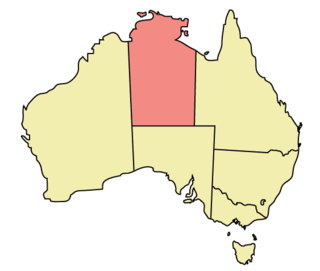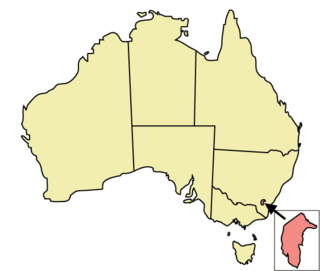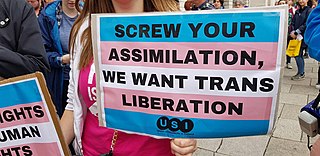Related Research Articles
The legal status of transgender people varies greatly around the world. Some countries have enacted laws protecting the rights of transgender individuals, but others have criminalized their gender identity or expression. In many cases, transgender individuals face discrimination in employment, housing, healthcare, and other areas of life.
Heteronormativity is the concept that heterosexuality is the preferred or normal sexual orientation. It assumes the gender binary and that sexual and marital relations are most fitting between people of opposite sex.

Non-binary and genderqueer are umbrella terms for gender identities that are outside the male/female gender binary. Non-binary identities often fall under the transgender umbrella since non-binary people typically identify with a gender that is different from the sex assigned to them at birth, although some non-binary people do not consider themselves transgender.
The following outline is provided as an overview of and topical guide to transgender topics.

Transgender rights in Iran are limited, with a narrow degree of official recognition of transgender identities by the government, but with trans individuals facing very high levels of discrimination, from the law, the state, and from the wider society.

Lesbian, gay, bisexual, and transgender (LGBTQ) people in India face legal and social challenges not experienced by non-LGBT people. There are no legal restrictions against gay sex or gay expression within India. Same-sex couples have some limited cohabitation rights, colloquially known as live-in relationships. However, India does not currently provide for common law marriages, same-sex marriage, civil unions, guardianship or issue partnership certificates.

Lesbian, gay, bisexual and transgender (LGBT) rights in Tamil Nadu are the most progressive among all states of India. Tamil Nadu was the first state in India to introduce a transgender welfare policy, wherein transgender individuals can access free gender affirmation surgery in government hospitals and various other benefits and rights. The state was also the first to ban forced sex-selective surgeries on intersex infants, and also the first state to include an amendment in its state police guidelines that expects officers to abstain from harassing the LGBTQIA+ community and its members. The state also became the first to ban conversion therapy as well as the first to introduce LGBTQIA+ issues in school curricula.
Discrimination against non-binary people, people who do not identify exclusively as male or female, may occur in social, legal, or medical contexts.

Lesbian, gay, bisexual, and transgender (LGBT) people in Australia's Northern Territory have the same legal rights as non-LGBT people. The liberalisation of the rights of lesbian, gay, bisexual and transgender (LGBTQ) people in Australia's Northern Territory has been a gradual process. Homosexual activity was legalised in 1983, with an equal age of consent since 2003. Same-sex couples are recognised as de facto relationships. There was no local civil union or domestic partnership registration scheme before the introduction of nationwide same-sex marriage in December 2017, following the passage of the Marriage Amendment Act 2017 by the Australian Parliament. The 2017 Australian Marriage Law Postal Survey, designed to gauge public support for same-sex marriage in Australia, returned a 60.6% "Yes" response in the territory. LGBT people are protected from discrimination by both territory and federal law, though the territory's hate crime law does not cover sexual orientation or gender identity. The territory was the last jurisdiction in Australia to legally allow same-sex couples to adopt children.

The Australian Capital Territory (ACT) is one of Australia's leading jurisdictions with respect to the rights of lesbian, gay, bisexual, and transgender (LGBT) people. The ACT has made a number of reforms to territory law designed to prevent discrimination of LGBTQ people; it was the only state or territory jurisdiction in Australia to pass a law for same-sex marriage, which was later overturned by the High Court of Australia. The Australian Capital Territory, Victoria, New South Wales and Queensland are the only jurisdictions within Australia to legally ban conversion therapy on children. The ACT's laws also apply to the smaller Jervis Bay Territory.

National Legal Services Authority v. Union of India(2014) is a landmark judgement of the Supreme Court of India, which declared transgender people the 'third gender', affirmed that the fundamental rights granted under the Constitution of India will be equally applicable to them, and gave them the right to self-identification of their gender as male, female or third gender.

The following outline offers an overview and guide to LGBTQ topics:

Intersex people are born with sex characteristics, such as chromosomes, gonads, or genitals that, according to the United Nations Office of the High Commissioner for Human Rights, "do not fit typical binary notions of male or female bodies".
Transgender rights in Australia have legal protection under federal and state/territory laws, but the requirements for gender recognition vary depending on the jurisdiction. For example, birth certificates, recognised details certificates, and driver licences are regulated by the states and territories, while Medicare and passports are matters for the Commonwealth.

Multiple countries legally recognize non-binary or third gender classifications. These classifications are typically based on a person's gender identity. In some countries, such classifications may only be available to intersex people, born with sex characteristics that "do not fit the typical definitions for male or female bodies."

A citizen of Ireland is legally permitted to change the designation of their gender on government documents through self-determination. In 2015, Ireland was the fourth state in the world to permit such alterations to government documents. By May 2017, 230 people had been granted gender recognition certificates under the law. Section 16 of the Act entitles the holder of a gender recognition certificate to apply to have the certificate amended if there is a clerical error or an error of fact in the content of the certificate. Two such corrections have been made since commencement of the Act.

S Sushma &Anr. versus Commissioner of Police&Ors.(2021) is a landmark decision of the Madras High Court that prohibited practice of "conversion therapy" by medical professionals in India. The court directed comprehensive measures to sensitize the society and various branches of the Union and State governments to remove prejudices against the queer community.
Vyjayanti Vasanta Mogli is an Indian transgender activist, RTI activist, singer and motivational speaker. She intervened in the “Suresh Kumar Kaushal & Other vs Naz Foundation & Others” case in the Supreme Court in 2014 in which she highlighted the deleterious effects of conversion or reparative therapy on queer people through her affidavit.

Arun Kumar &Anr. versus Inspector General of Registration&Ors. (2019) is a decision of the Madras High Court which recognised trans woman as a "bride" within the meaning of the Hindu Marriage Act 1955 and prohibited genital-normalizing surgery for intersex infants and children except on life-threatening situations.

Karnataka Sexual Minorities Forum versus State of Karnataka &Ors. (2017), a case of the Karnataka High Court, which resulted in an amendment of Section 36A of the Karnataka Police Act, which categorized the intersex, non-binary gender and transgender individuals as predisposed to criminal activity.
References
- 1 2 3 4 "Hits and misses of Telangana High Court's Order striking down the 'Eunuch' Act – The Leaflet". theleaflet.in. 2023-07-15. Retrieved 2023-08-27.
- 1 2 3 Sasikumar, Meenakshy (2023-07-10). "Telangana High Court Scraps 'Unconstitutional' Eunuchs Act: Here's Why It Needed To Go". TheQuint. Retrieved 2023-08-27.
- 1 2 3 4 5 6 7 8 9 10 11 12 13 14 15 16 17 18 19 20 21 Vyjayanti Vasanta Mogli v. State of Telangana, Writ Petition (Public Interest Litigation) No. 44 of 2018 ( Telangana High Court 6 July 2023),archived from the original .
- 1 2 Hinchy, Jessica Bridgette (2 July 2019). "The long history of criminalising Hijras". Himal Southasian. Archived from the original on 9 July 2019.
- 1 2 3 Kothari, Jayna (2019). "Section 377 and Beyond: A New Era for Transgender Equality?" (PDF). In Meinardus, Ronald (ed.). How liberal is India? the quest for freedom in the biggest democracy on earth. New Delhi: Academic Foundation. ISBN 978-93-327-0507-4. Archived from the original on 2021-07-27. Retrieved 2023-08-27.
{{cite book}}: CS1 maint: bot: original URL status unknown (link) - 1 2 3 "Vyjayanti Vasanta Mogli & Ors. v. State of Telangana". Centre for Law & Policy Research. Retrieved 2023-08-27.
- ↑ Telangana Eunuchs Act of 1329 Fasli (PDF). Telangana Legislature. 1919.
- ↑ "Vyjayanti Vasanta Mogli v. State of Telangana & Ors". Centre for Law & Policy Research. Retrieved 2023-08-28.
- 1 2 3 Vyjayanti Vasanta Mogli v. State of Telangana, Writ Petition (Public Interest Litigation) No. 74 of 2020 ( Telangana High Court 27 April 2020),archived from the original .
- 1 2 Vyjayanti Vasanta Mogli v. State of Telangana, Writ Petition (Public Interest Litigation) No. 74 of 2020 ( Telangana High Court 29 June 2020),archived from the original .